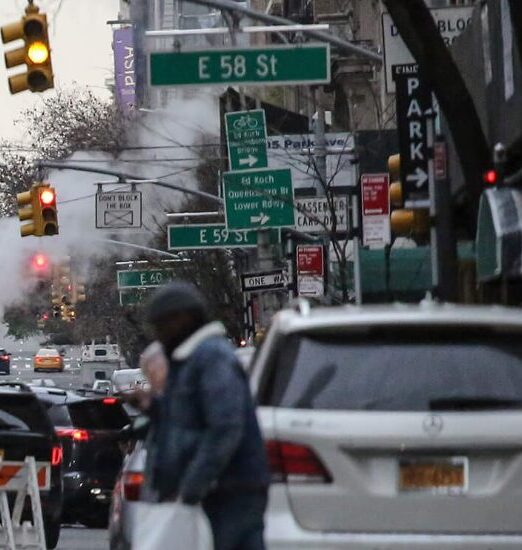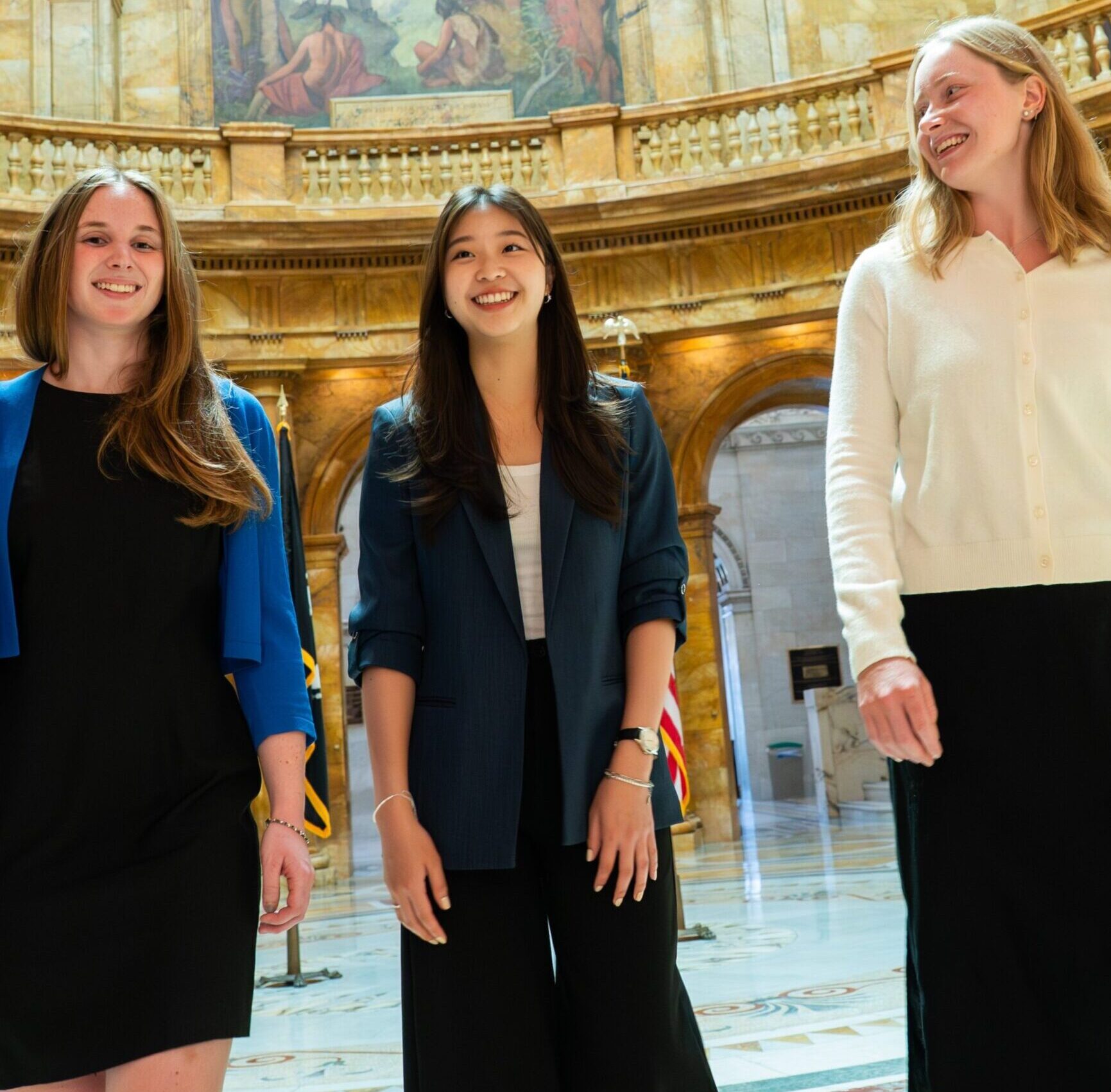Salata Institute Funds Five New Climate Research Projects
The Salata Institute Seed Grant Program supports new research, encourages new interdisciplinary partnerships, and enables faculty whose work is not normally in climate and sustainability to apply their expertise to the climate challenge. With the addition of these five awards, the Salata Institute now supports 32 research projects on understudied and emerging climate topics through this program.
This program is part of the Salata Institute’s aggressive efforts to expand climate and sustainability research across Harvard University. Since its launch in June 2022, the Institute has awarded over $8.8M in research funding, supporting the work of over 60 faculty from every Harvard School.
The Salata Institute Seed Grant Program is supported by a gift from the Troper Wojcicki Foundation. It was with profound sadness that the Salata Institute recently shared news of the passing of Susan Wojcicki, an esteemed adviser and supporter of the Institute who helped make this program possible.
Harvard faculty members interested in the program can access the current call for proposals here to learn more about the program. Proposals will be considered two times per year, with deadlines of the first Friday of October and February.

From Waste to Taste: High-throughput Screening for Microbes to Transform Dairy Waste into Sweet-Tasting Proteins as Novel Sugar Alternatives
Principal Investigator: David Weitz, Mallinckrodt Professor of Physics and of Applied Physics
Dairy production creates vast volumes of nutrient-rich waste. Lactose-heavy whey permeates, spoiled butter – both are often dumped into landfills or down the drain. Similarly, about 80 percent of the milk used to make cheese is tossed.
This helps explain why the dairy industry is the second-largest food-related contributor to greenhouse gas emissions.
Yet these byproducts are not useless. Recent developments in microbiology have provided novel and economically sustainable opportunities to upcycle dairy waste into valuable products, such as food and fertilizers and industrial chemicals.
The trick is identifying the right microbes to make work.
David Weitz’s lab will use its core technology of microfluidics-assisted high-throughput screening to identify suitable microbes from libraries of millions of mutants. It aims to develop robust, food-safe microbial strains to convert food waste into carbon-neutral products that will benefit the climate and the dairy sector. As a proof-of-concept, it will begin by generating microbes to convert lactose, the major component in dairy waste, into sweet-tasting proteins, which can be used as novel natural sugar alternatives in reduced-sugar products such as low-calorie yogurts and ice creams. The strategy will reduce the climate impact of dairy waste by at least 20%, equivalent to 1 million metric tons of CO2. per year. It will also yield significant revenue for food companies and dairy plants.
Labor in the Just Transition
Principal Investigator: Sharon Block, Professor of Practice, Harvard Law School; Executive Director, Center for Labor and a Just Economy
The transportation sector is the largest contributor of greenhouse gas emissions in the United States. Carmakers play a pivotal part in the transition to electric vehicles, which is essential to decarbonizing. But what about the workers?
United Auto Workers – the union that represents auto-sector workers – recently won a major role in planning the shift at Detroit’s Big Three automakers and has committed to expanding into non-union EV and battery-producing plants across the country.
Newly unionized EV plants present a key opportunity to test whether safeguarding economic and social benefits for workers and their families can also serve the goals of the environmental movement: a swift and comprehensive transition to an EV future.
The complexity of navigating the dual crises of climate change and economic insecurity has underscored the need for robust, research-backed evidence to guide policymaking and organizing.
The Center for Labor and a Just Economy will gather insights through a comparison of unionized and non-union EV battery plants to inform our understanding of the link between collective bargaining, climate policy implementation, and outcomes for workers and their communities. This study sits at the intersection of law, organizing, climate, and democracy.
Analyzing Zoning Codes to Identify Sustainable Locations for New Housing
Principal Investigator: Carole Voulgaris, Associate Professor of Urban Planning, Harvard University Graduate School of Design
The scarcity of affordable housing and the need to reduce carbon emissions are twin crises facing cities today. Yet the solutions can create tensions: Construction and occupancy of new housing generates new emissions. Developers often find it less profitable to build in central locations where residents may walk and take public transportation.
Open-source data-analysis software allows urban planners to interrogate these tensions: How much new housing could be developed under existing zoning codes in walkable and transit-accessible neighborhoods if all parcels were developed to their maximum capacity? Are there particular housing types that could be replicated at scale as in-fill projects to substantially increase a neighborhood’s supply of housing?
To answer these questions, the project will develop a set of open-source software tools to analyze municipal zoning code data and identify opportunities to develop new small-to medium-sized housing developments of two to 10 units. The team will use these tools to analyze zoning data in the Boston region and determine what housing types have the potential to make the greatest total contribution to the region’s green development goals.
The project team will make its software freely available to academics, municipal planners, and small-scale developers looking it to identify opportunities to develop housing in sustainable locations.
Rights of Nature and Climate Change
Principal Investigator: Kristen A. Stilt, Professor of Law; Faculty Director, Brooks McCormick Jr. Animal Law & Policy Program
In most places, nature is considered property. Environmental law generally puts humans at the center, protecting the environment for the purpose of protecting humans. The rights of nature (RoN) movement has emerged as a corrective to this anthropocentrism.
RoN advocates for a paradigm shift in people’s understanding of humans’ relationship with nature by granting rights to nature as a whole or to natural entities such as rivers, forests, and animals. RoN views nature as a subject rather than property, recognizing the interconnection of all living beings. This view has been associated with Indigenous peoples’ worldviews for generations, and many Indigenous communities have been crucial actors in the development and spread of RoN globally.
Advocates have achieved remarkable success. For example, Ecuador recognizes RoN in its Constitution, and perhaps Ireland and Aruba will become the next to do so. Bolivia, New Zealand, Spain, Uganda, and Panama have recognized RoN in legislation, while higher courts in countries such as Colombia, Bangladesh, and India have recognized RoN in cases regarding rivers.
Yet RoN and climate change remain distant in terms of legal representation, advocacy, research, and scholarship.
With this seed grant, the Animal Law & Policy Program at Harvard Law School will host a workshop with the goal of bringing together key members of the global RoN community and key members of the global climate change and sustainability movement who have indicated an interest and desire to work together to address common goals, such as the devastating effects of industrial animal agriculture on climate change, deforestation, and biodiversity loss. The Animal Law & Policy Program aims to become Harvard’s hub for teaching, research, scholarship, and policy that connects RoN, climate change, sustainability, and animal rights.
A Performance Evaluation Methodology for Nature-Based Adaptation Solutions
Principal Investigator: Charles Waldheim, John E. Irving Professor of Landscape Architecture; Director, GSD Office for Urbanization. Co-PI: Pamela Conrad, Design Critic in Landscape Architecture
Without adaptation measures, by 2050, rising seas, groundwater, and increased stormwater flooding will impact thousands of miles of shoreline in communities globally. Although it is generally understood today that nature-based solutions – marshes and mangroves rather than seawalls, for example – can address these risks while offering economic, ecological, and social benefits, they are not yet widely implemented in coastal adaptation work, and there is no proven methodology for evaluating their effectiveness.
Without a methodology, host communities miss out on a range of benefits—cost savings, reduced emissions and improved human health, biodiversity, and cooling, to name a few.
This study will develop and distribute a methodology for evaluating the performance of nature-based shoreline-adaptation solutions against “business as usual” approaches considering these benefits.
Low-carbon, nature-based infrastructure can address instead of exacerbate the climate crisis. By developing and testing a methodology, this study could pave the way for widespread implementation of nature-based adaptation solutions. Insights from this study could inform the infrastructure of 2050, 75% of which is yet to be built.









